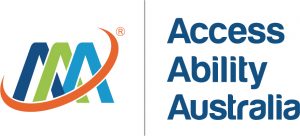What is an Access Key?
Access Keys are customised accessibility guides that provide accurate and convenient information about accessing venues, events and programs at the click of a button. They are universally designed and suitable for all people, regardless of ability. Our Access Key products ensure high levels of quality and accurate information.
Access Key information may include but is not limited to navigational instructions on getting to a chosen venue or event, parking, layout, access in and around a venue or event, reception/ticketing locations and services, identification of staff by uniform, toilets including their environmental specifications, food and beverage services, programming, experiences and accessible offerings plus much more!
Access Keys help users understand what to expect from a specific experience before attending, help to determine the suitability of a experience, help to alleviate anxiety about visiting new places, support the interpretation of circumstances and process new concepts whilst in attendance and are also a great tool for fostering independence.
Access Keys are presented in a Portable Document Format (pdf). They are free of charge to download from our website library page as well as from the website of the clients we work with. Access Keys can be printed. They are mobile responsive and can be downloaded and accessed on any mobile device, via our website.
For people who are blind or live with low vison, every Access Key is also available for free download in large print and formatted for use assistive technology from our website library page. In collaboration with Vision Australia, Access Keys are available in Braille or audio. Please contact Access Ability Australia for further information.
For optimum outcomes and positive experiences, Access Keys are available online to help you prepare for your visit in advance. Full implementation guidelines are provided with every Access Key.
Who may benefit from Access Keys?
Access Keys are universally designed for a wide audience regardless of ability. This may include, but are not limited to the following:
- Autism spectrum disorder
- Ageing population
- Parents with prams
- Educators
- Intellectual disabilities
- Severe language disorders
- Acquired brain injuries
- Sensory impairment
- Sensory Processing Disorder
- Dementia
- Deaf or hard of hearing
- Temporary disability
- Alzheimer’s
- Attention deficit hyper disorder (ADHD)
- Down syndrome
- Mental illness (anxiety, depression)
- Stroke
- Cognitive impairment
- Vision impairment
- People who do not speak English or Overseas visitors
